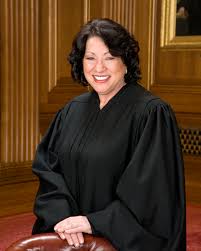Sonia Sotomayor [1954-0] American    
Rank: 101
Judge, Associate Justice of the Supreme Court of the United States
Sonia Maria Sotomayor is an Associate Justice of the Supreme Court of the United States, serving since August 2009. She has the distinction of being its first justice of Hispanic heritage, the first Latina, its third female justice, and its twelfth Roman Catholic justice. Legal, Hope, Positive, Business, Equality, Experience, Failure, God, History, Home, Independence, Life, Marriage, Morning, Success |  |